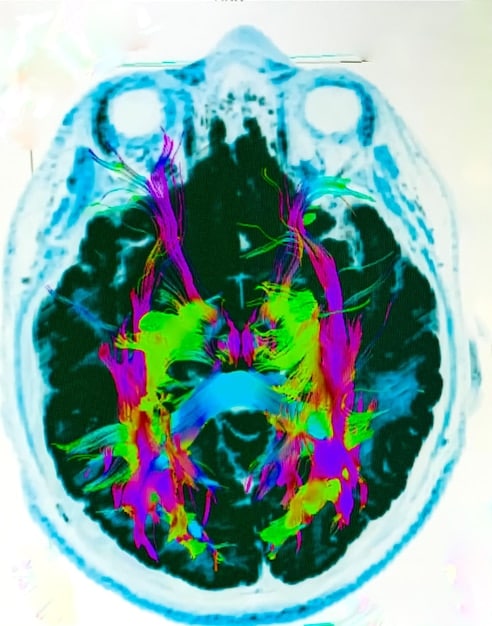Gratitude & Resilience: A Simple Practice for a Happier Life

The link between gratitude and emotional resilience lies in how consistently acknowledging and appreciating positive aspects of life can buffer stress, enhance coping mechanisms, and foster a more optimistic outlook, ultimately contributing to greater emotional well-being.
Discover the link between gratitude and emotional resilience: a simple practice for a happier life. Learn how cultivating gratitude can positively impact your emotional well-being and help you navigate life’s challenges with greater ease.
Understanding Gratitude and Emotional Resilience
Gratitude and emotional resilience are two powerful forces that, when combined, can significantly enhance our well-being. Let’s explore what each of these concepts means and how they work together.
What is Gratitude?
Gratitude is the feeling of appreciation for what you have, whether it’s tangible items, experiences, or relationships. It involves recognizing the good things in your life and acknowledging the role that others or external circumstances play in providing them.
Defining Emotional Resilience
Emotional resilience is the capacity to recover quickly from difficulties. It’s not about avoiding stress or negative emotions, but rather about being able to bounce back from setbacks and adapt to challenging situations.

How do these two concepts connect? The practice of gratitude can fortify emotional resilience by shifting our focus to positive aspects, even during tough times. This shift in perspective can help us manage stress more effectively and build a stronger sense of self-worth.
- Gratitude helps reframe negative experiences.
- It promotes a sense of connection and support.
- Gratitude fosters optimism and hope.
In essence, gratitude provides a solid foundation for emotional resilience, enabling us to navigate life’s ups and downs with greater strength and positivity.
The Science Behind Gratitude and the Brain
Emerging research in neuroscience shows that gratitude is not just a feel-good emotion; it also has a concrete impact on the brain. Understanding this science can provide insight into how gratitude boosts emotional resilience.
Gratitude and Neurotransmitters
Studies have found that practicing gratitude can increase levels of neurotransmitters like dopamine and serotonin. These chemicals are associated with feelings of happiness and well-being, which can help reduce symptoms of anxiety and depression.
The Impact on Brain Structure
Functional MRI scans have revealed that gratitude activates regions of the brain associated with empathy and positive social interactions. Regular gratitude practice can strengthen these neural pathways, making it easier to experience positive emotions.

The brain’s neuroplasticity allows it to adapt and change over time. By consistently practicing gratitude, individuals can essentially rewire their brains to be more predisposed to happiness and resilience. This process can also reduce the impact of negative stimuli by strengthening coping mechanisms.
- Gratitude activates the brain’s reward system.
- It enhances social connections and empathy.
- Regular practice can alter brain structure for the better.
By understanding the neurological underpinnings of gratitude, we can better appreciate its potential as a tool for enhancing emotional resilience and overall mental health.
Practical Ways to Cultivate Gratitude
Cultivating gratitude doesn’t have to be a chore. Here are some practical and simple ways to incorporate gratitude into your daily life, making it a habit that enhances your emotional resilience.
Gratitude Journaling
Keeping a gratitude journal involves regularly writing down things you are grateful for. This could be done daily, weekly, or whenever you feel the need to reflect on positive aspects of your life. The practice helps you to actively recognize and appreciate the good.
Expressing Gratitude to Others
Verbalizing your gratitude to others not only makes them feel appreciated but also amplifies your own positive emotions. A simple “thank you” can go a long way in building stronger relationships and a more supportive environment.
Another way to express gratitude is through acts of kindness. Helping someone out, offering support, or simply being there for a friend or family member can be a powerful way to show appreciation. These actions reinforce positive feelings and strengthen social bonds.
- Write down three things you’re grateful for each day.
- Send a thank-you note to someone you appreciate.
- Perform a random act of kindness.
Ultimately, by making a conscious effort to recognize and express gratitude, you reinforce positive thought patterns and strengthen your emotional resilience, leading to a happier, more fulfilling life.
The Mental Health Benefits of Gratitude
Beyond simply feeling good, gratitude offers tangible mental health benefits that can significantly improve your overall well-being. Here’s how gratitude can positively impact your mental state.
Reducing Stress and Anxiety
Gratitude helps to reframe negative thoughts and reduce the impact of stressful situations. By focusing on what you have rather than what you lack, you can lessen feelings of anxiety and overwhelm.
Combating Depression
Studies have shown that practicing gratitude can alleviate symptoms of depression. It boosts positive emotions, fosters optimism, and promotes a sense of hope, all of which are crucial in combating depressive states.
Furthermore, gratitude can enhance self-esteem. Recognizing your own positive qualities and accomplishments, as well as appreciating the support of others, can build a stronger sense of self-worth and confidence. This is particularly important in overcoming negative self-perceptions and building emotional resilience.
- Gratitude shifts focus from negative to positive emotions.
- It boosts optimism and hope.
- It enhances self-esteem and self-worth.
In summary, the mental health benefits of gratitude are extensive, making it a valuable practice for anyone seeking to improve their emotional well-being and resilience.
Overcoming Challenges to Practicing Gratitude
While the concept of gratitude is simple, incorporating it into your daily life may present challenges. Here are some common obstacles and strategies to overcome them.
Dealing with Negative Emotions
Sometimes, it can be difficult to feel grateful when you’re facing hardship or experiencing negative emotions. The key is not to deny these feelings but to acknowledge them while still seeking out small things to appreciate. Start with simple things like a warm cup of coffee or a supportive friend.
Making Time for Gratitude
In today’s fast-paced world, it’s easy to forget to take time for gratitude. Schedule a few minutes each day, even if it’s just five, to reflect on the things you’re grateful for. This could be during your morning coffee, before bed, or any other time that works for you.
Another challenge is maintaining consistency. It’s important to make gratitude a habit, not just something you do when you feel like it. Set reminders, join a gratitude challenge, or find a partner to share your experiences with. The key is to keep the practice engaging and sustainable.
- Acknowledge negative emotions without letting them overshadow the positive.
- Schedule specific times for gratitude practices.
- Find ways to maintain consistency and stay motivated.
By addressing these challenges head-on, you can make gratitude a consistent and valuable part of your life, strengthening your emotional resilience and overall well-being.
Gratitude in Relationships and Community
Gratitude extends beyond personal reflection; it plays a vital role in strengthening relationships and fostering community bonds. Here’s how gratitude can enhance your connections with others.
Strengthening Personal Relationships
Expressing gratitude to your loved ones not only makes them feel appreciated but also deepens your connection with them. A simple “thank you” or a heartfelt expression of love and gratitude can go a long way in building trust and intimacy.
Building Community
Gratitude also plays a role in community building. Recognizing and appreciating the contributions of others in your community fosters a sense of belonging and mutual support. This could involve volunteering, supporting local businesses, or simply acknowledging the efforts of community leaders.
Furthermore, gratitude promotes empathy and compassion. When we appreciate the good things in our lives, we’re more likely to extend kindness and understanding to others, creating a more supportive and harmonious community environment.
- Express gratitude to loved ones regularly.
- Support and appreciate community members.
- Promote empathy and compassion through gratitude.
Ultimately, by incorporating gratitude into your relationships and community interactions, you create a positive ripple effect that enhances emotional resilience and strengthens social bonds.
Maintaining a Gratitude Practice Long-Term
Building a sustainable gratitude practice involves making it a consistent part of your daily routine. Here are some tips to ensure your gratitude habit lasts long-term.
Varied Approaches
Keep your gratitude practice fresh by trying different approaches. Alternate between gratitude journaling, expressing gratitude to others, and reflecting on positive experiences. This variety will prevent the practice from becoming monotonous.
Mindfulness and Presence
Practice mindfulness to fully appreciate the present moment. Pay attention to the small joys and blessings in your life, and soak them in. This heightened awareness will make it easier to recognize and feel grateful for what you have.
Another key is to embrace imperfections. It’s okay if you miss a day or two of your gratitude practice. Don’t beat yourself up about it. Just pick up where you left off and keep moving forward. The goal is to cultivate a positive mindset, not achieve perfection.
- Try varied gratitude exercises to keep things fresh.
- Practice mindfulness to appreciate the present moment.
- Embrace imperfections and maintain a positive mindset.
By following these tips, you can maintain a long-term gratitude practice that continues to enhance your emotional resilience and overall well-being for years to come.
| Key Point | Brief Description |
|---|---|
| 😊 Gratitude’s Definition | Appreciation for the good things in life. |
| 🧠 Brain Impact | Increases dopamine and serotonin. |
| ✍️ Gratitude Journaling | Regularly writing down things you are grateful for. |
| 🫂 Community | Strengthens bonds through empathy and support. |
FAQ: Gratitude and Emotional Resilience
▼
Practicing gratitude enhances emotional resilience by shifting focus to positive aspects, helping manage stress and build a stronger sense of self-worth.
▼
Gratitude increases levels of dopamine and serotonin, which are neurotransmitters associated with feelings of happiness and well-being.
▼
Practical ways to cultivate gratitude include keeping a gratitude journal, expressing gratitude to others, and performing random acts of kindness.
▼
Yes, gratitude can help in reducing stress and anxiety, combating depression, and enhancing self-esteem, contributing to better mental health.
▼
To maintain a long-term gratitude practice, try varied approaches, practice mindfulness, and embrace imperfections, making it a sustainable part of your life.
Conclusion
In conclusion, the link between gratitude and emotional resilience: a simple practice for a happier life is undeniable. By cultivating gratitude through simple practices such as journaling, expressing thanks, and mindful reflection, individuals can significantly enhance their emotional well-being and build resilience to navigate life’s inevitable challenges.





